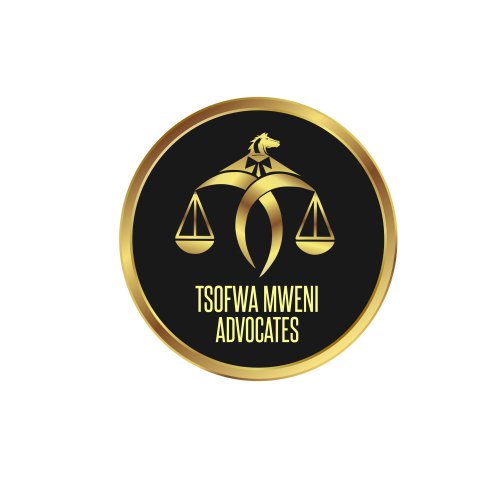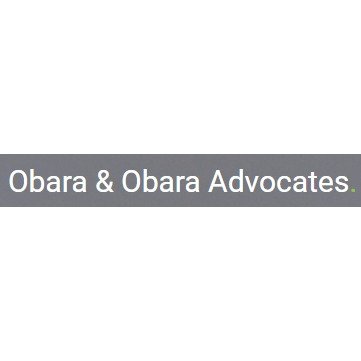About Sustainable Finance Law in Mombasa, Kenya
Sustainable Finance refers to making investment and lending decisions that consider not only financial returns, but also environmental, social, and governance (ESG) factors. In Mombasa, Kenya, this means integrating sustainability principles within the financial sector to promote responsible business practices, support green projects, and encourage ethical investments that contribute to long-term economic, social, and environmental well-being. Kenya is making significant efforts to align its banking, insurance, capital markets, and development projects with global sustainable finance standards. These efforts are supported by government policies, sectoral guidelines, and international commitments like the United Nations Sustainable Development Goals and the Paris Agreement.
Why You May Need a Lawyer
Working with a lawyer is important when dealing with sustainable finance due to the complexity of relevant laws and the multifaceted nature of ESG compliance. Common situations where people may require legal assistance include:
- Structuring green bonds or climate-related investments
- Ensuring compliance with environmental and social risk standards in lending or investment
- Advising on renewable energy project financing
- Negotiating agreements for sustainable infrastructure developments
- Understanding regulatory requirements for financial institutions adopting sustainable practices
- Managing disputes related to ESG disclosures, greenwashing, or misrepresentation
- Guiding development of corporate sustainability policies
- Interpreting and implementing government incentives for sustainable projects
- Dealing with cross-border sustainability investments and reporting obligations
Local Laws Overview
Kenya has introduced several laws and regulations intended to promote sustainable finance, many of which are applicable in Mombasa. Some of the key aspects include:
- Central Bank of Kenya (CBK) Guidance on Sustainable Finance: Banks and financial institutions are encouraged to align with sustainable finance principles, focusing on responsible lending and risk assessments for environmental and social impact.
- Capital Markets Authority (CMA) Green Bond Programme: Guidelines for issuing green bonds which are used to finance environmentally friendly projects.
- National Policy Frameworks: Kenya’s Vision 2030 and National Climate Change Action Plan promote green growth and low-carbon development.
- Environmental Management and Coordination Act: All financial activities funding projects in Mombasa must comply with environmental impact assessment and licensing requirements.
- Public-Private Partnerships Act: Provides for sustainable infrastructure development through private sector participation.
- International ESG standards: Local institutions are increasingly adopting global standards for sustainability reporting and investing, such as GRI, SASB, and the Equator Principles.
Frequently Asked Questions
What is sustainable finance?
Sustainable finance refers to any form of financial service that integrates environmental, social, and governance criteria into business or investment decisions for the long-term benefit of both clients and society.
Is there specific legislation for sustainable finance in Kenya?
Kenya does not have a single consolidated law on sustainable finance, but several regulators such as the Central Bank of Kenya and the Capital Markets Authority have issued guidelines and policies supporting sustainable finance practices.
What types of projects qualify for green or sustainable financing in Mombasa?
Qualifying projects typically include renewable energy, waste management, sustainable transport, water conservation, green buildings, and any initiative that reduces environmental harm or promotes social good.
Can individuals or small businesses access sustainable finance products?
Yes, both individuals and businesses in Mombasa can access credit and investment products labeled as green or sustainable, provided they meet the eligibility criteria set by banks or funders.
What are the main risks associated with sustainable finance?
Risks include potential greenwashing, regulatory changes, unclear impact measurement tools, and failure to meet ESG commitments which can lead to legal or reputational consequences.
How can I ensure my business complies with ESG requirements?
Engage a lawyer to guide you on compliance with relevant laws, help develop internal policies, train your staff, and ensure all reporting and due diligence requirements are met.
What role do local authorities in Mombasa play in sustainable finance?
Local authorities may set supplementary guidelines, monitor compliance for projects within their jurisdiction, and assist in licensing or permitting processes for sustainability-related projects.
Are there tax incentives for sustainable investment projects in Kenya?
Some tax breaks and exemptions exist for investments in renewable energy, clean technology, and other priority sectors, but eligibility should be confirmed with a legal or tax expert specializing in sustainable finance.
What should I look out for in a sustainable finance agreement?
Pay attention to the definitions of green or sustainable activities, ESG risk management clauses, impact measurement and reporting obligations, penalties for non-compliance, and dispute resolution mechanisms.
How can I find a qualified sustainable finance lawyer in Mombasa?
Seek lawyers or legal firms with experience in finance, environmental law, and corporate governance. Ask about their work with sustainable projects and make sure they understand both local and international frameworks.
Additional Resources
The following organizations and governmental bodies in Kenya can provide useful information and support related to sustainable finance:
- Central Bank of Kenya (CBK) - for banking sector guidelines
- Capital Markets Authority (CMA) - for capital markets and green bond regulations
- National Environment Management Authority (NEMA) - for environmental licensing and compliance
- Kenya Green Bond Programme - for information on green bonds and sustainable funding
- Climate Innovation Center Kenya - for support to green startups and innovators
- Law Society of Kenya - for legal referrals
- County Government of Mombasa - for local by-laws and sustainability programmes
Next Steps
If you require legal assistance in the field of sustainable finance in Mombasa, Kenya:
- Identify your specific needs, such as project financing, risk compliance, or policy development.
- Research local legal professionals and firms with proven experience in sustainable finance, environmental law, and corporate governance.
- Prepare all relevant documentation about your project, investment, or business operation before your first consultation.
- Request an initial meeting to discuss your legal options, likely costs, and the lawyer’s understanding of ESG criteria and local regulations.
- Stay informed about regulatory updates and best practices in sustainable finance to ensure continued compliance and successful project outcomes.
Taking these steps will help you navigate the evolving landscape of sustainable finance in Mombasa and secure the right legal guidance to achieve your sustainability objectives.
Lawzana helps you find the best lawyers and law firms in Mombasa through a curated and pre-screened list of qualified legal professionals. Our platform offers rankings and detailed profiles of attorneys and law firms, allowing you to compare based on practice areas, including Sustainable Finance, experience, and client feedback.
Each profile includes a description of the firm's areas of practice, client reviews, team members and partners, year of establishment, spoken languages, office locations, contact information, social media presence, and any published articles or resources. Most firms on our platform speak English and are experienced in both local and international legal matters.
Get a quote from top-rated law firms in Mombasa, Kenya — quickly, securely, and without unnecessary hassle.
Disclaimer:
The information provided on this page is for general informational purposes only and does not constitute legal advice. While we strive to ensure the accuracy and relevance of the content, legal information may change over time, and interpretations of the law can vary. You should always consult with a qualified legal professional for advice specific to your situation.
We disclaim all liability for actions taken or not taken based on the content of this page. If you believe any information is incorrect or outdated, please contact us, and we will review and update it where appropriate.

















